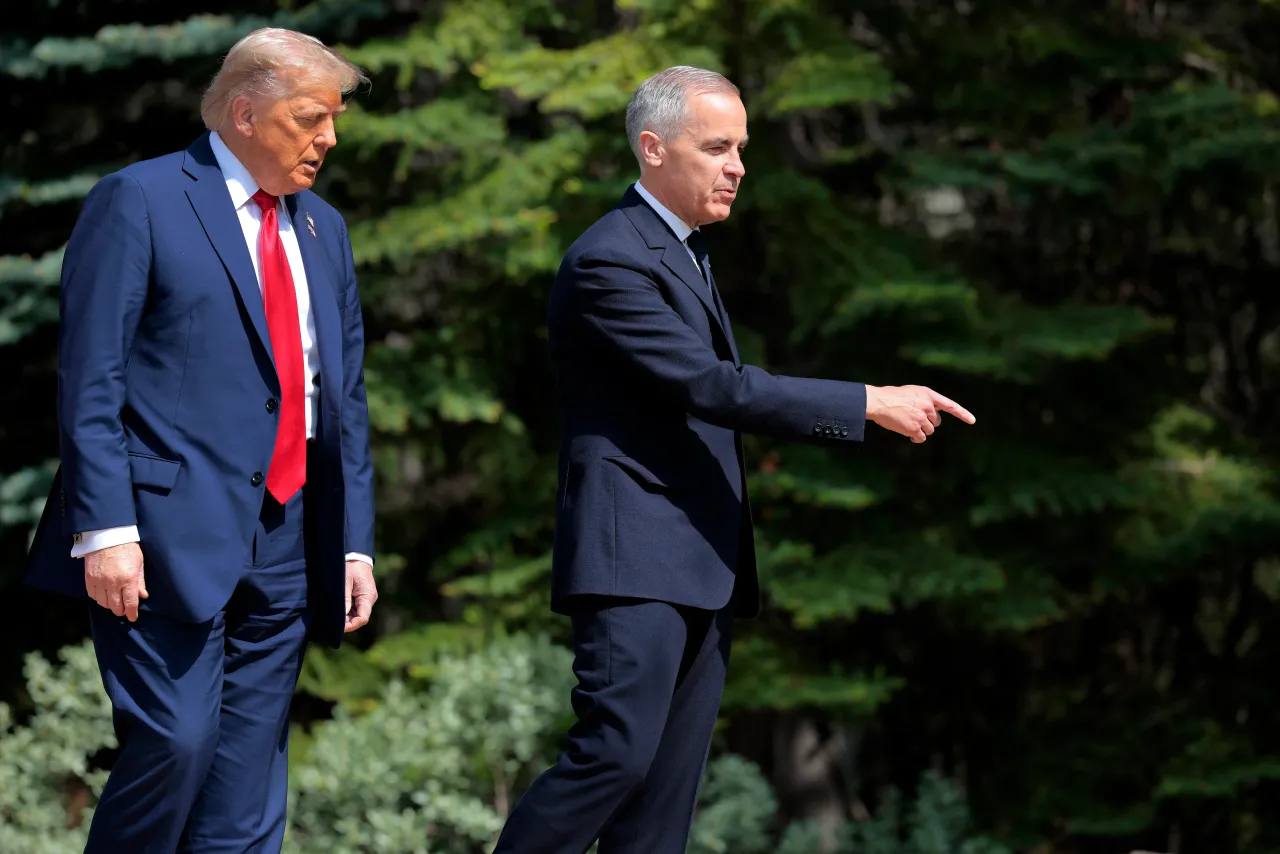Advertisement|Remove ads.
Canada Buckles Under Trump Threat, Suspends Digital Tax On Tech Firms — Trade Talks Likely to Resume

Canada opted to scrap a digital services tax on U.S. tech companies after U.S. President Donald Trump threatened to terminate all trade discussions with the country over the issue.
The suspension of the tax came just a day before the first payments fell due. The tax was enacted last year and allowed the Canadian government to collect payments retrospectively from 2022, from both domestic and overseas tech companies.
Canadian officials had previously implied that they would not rescind the tax despite the pressure from the U.S.
The development should bring relief to traders who are concerned about Trump’s steep “Liberation Day tariffs,” which are set to take effect if deals aren’t struck by the July 9 deadline for most nations.
The SPDR S&P 500 ETF (SPY), an exchange-traded fund (ETF) tracking the broader S&P 500 Index, has gained 5.55% this year, and the iShares MSCI Canada ETF (EWC) is up about 14%.
A statement from Canada’s Department of Finance on Sunday said, “Canada would rescind the Digital Services Tax (DST) in anticipation of a mutually beneficial comprehensive trade arrangement with the United States.”
The DST was announced in 2020 to address the loophole that allowed large tech companies operating in Canada to avoid paying tax on revenues generated by Canadians.
The Canadian government said, “Consistent with this action, Prime Minister [Mark] Carney and President Trump have agreed that parties will resume negotiations with a view towards agreeing on a deal by July 21, 2025.”
This timeline was established at the G7 Leaders’ Summit in Kananaskis earlier this month.
That finance department statement also said, “Prime Minister Carney has been clear that Canada will take as long as necessary, but no longer, to achieve that deal.”
U.S. business and tech groups have been lobbying for a delay in the payment date or renegotiation of the policy altogether.
For updates and corrections, email newsroom[at]stocktwits[dot]com.











/filters:format(webp)https://news.stocktwits-cdn.com/large_China_i_Phone_jpg_bcedab655a.webp)
/filters:format(webp)https://news.stocktwits-cdn.com/Aashika_Suresh_Profile_Picture_jpg_2acd6f446c.webp)
/filters:format(webp)https://st-everywhere-cms-prod.s3.us-east-1.amazonaws.com/large_American_Airlines_Getty_4d3d704837.jpg)
/filters:format(webp)https://news.stocktwits-cdn.com/vivekkrishnanphotography_58_jpg_0e45f66a62.webp)
/filters:format(webp)https://news.stocktwits-cdn.com/large_sabre_resized_jpg_fa5aa35db6.webp)
/filters:format(webp)https://news.stocktwits-cdn.com/large_Getty_Images_2049107660_jpg_906b4acd1f.webp)
/filters:format(webp)https://news.stocktwits-cdn.com/Anushka_Basu_make_me_smile_in_the_picture_b92832aa_af59_4141_aacc_4180d2241ba8_1_2_png_1086e0ed8c.webp)
/filters:format(webp)https://news.stocktwits-cdn.com/Getty_Images_2203496924_jpg_18e024f0e6.webp)
/filters:format(webp)https://news.stocktwits-cdn.com/jaiveer_jpg_280ad67f36.webp)
/filters:format(webp)https://news.stocktwits-cdn.com/Getty_Images_2195819624_jpg_841341254c.webp)